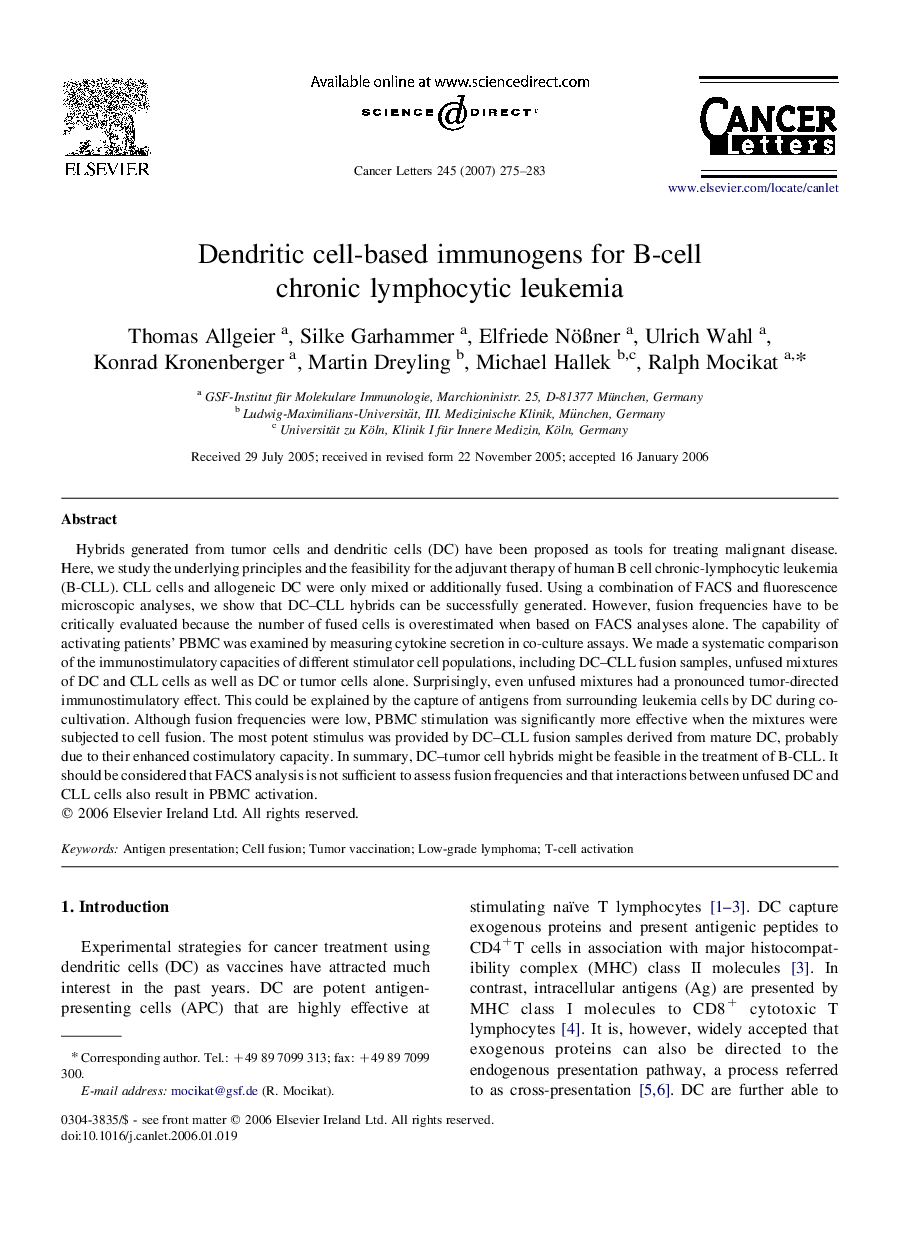| Article ID | Journal | Published Year | Pages | File Type |
|---|---|---|---|---|
| 2115453 | Cancer Letters | 2007 | 9 Pages |
Abstract
Hybrids generated from tumor cells and dendritic cells (DC) have been proposed as tools for treating malignant disease. Here, we study the underlying principles and the feasibility for the adjuvant therapy of human B cell chronic-lymphocytic leukemia (B-CLL). CLL cells and allogeneic DC were only mixed or additionally fused. Using a combination of FACS and fluorescence microscopic analyses, we show that DC-CLL hybrids can be successfully generated. However, fusion frequencies have to be critically evaluated because the number of fused cells is overestimated when based on FACS analyses alone. The capability of activating patients' PBMC was examined by measuring cytokine secretion in co-culture assays. We made a systematic comparison of the immunostimulatory capacities of different stimulator cell populations, including DC-CLL fusion samples, unfused mixtures of DC and CLL cells as well as DC or tumor cells alone. Surprisingly, even unfused mixtures had a pronounced tumor-directed immunostimulatory effect. This could be explained by the capture of antigens from surrounding leukemia cells by DC during co-cultivation. Although fusion frequencies were low, PBMC stimulation was significantly more effective when the mixtures were subjected to cell fusion. The most potent stimulus was provided by DC-CLL fusion samples derived from mature DC, probably due to their enhanced costimulatory capacity. In summary, DC-tumor cell hybrids might be feasible in the treatment of B-CLL. It should be considered that FACS analysis is not sufficient to assess fusion frequencies and that interactions between unfused DC and CLL cells also result in PBMC activation.
Related Topics
Life Sciences
Biochemistry, Genetics and Molecular Biology
Cancer Research
Authors
Thomas Allgeier, Silke Garhammer, Elfriede NöÃner, Ulrich Wahl, Konrad Kronenberger, Martin Dreyling, Michael Hallek, Ralph Mocikat,
